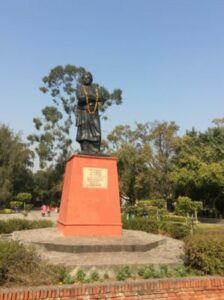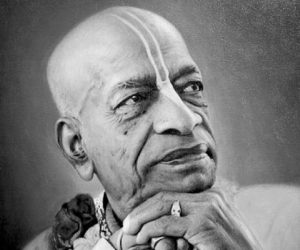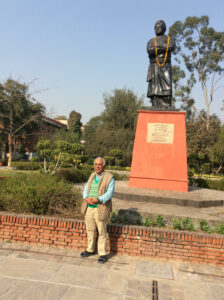Interacting with the Poor
TRANSCEND MEMBERS, 15 Feb 2021
Dr. Ravi P. Bhatia – TRANSCEND Media Service
9 Feb 2021 – All societies are divided socially, economically, racially and otherwise.
We see the very rich people enjoying their wealth and position in society by their behaviour and self-centeredness. They generally ignore the marginalised sections of people and keep them at a distance while walking with their ferocious looking pet dogs. They possess anything that money can buy and go to expensive resorts for fun and relaxation. They also have beautiful yachts for enjoyment and display.
The middle classes are reasonably stable and have the essentials of various items of life — food, shelter, education and jobs. But perhaps while looking into the lives of their wealthy citizens, they secretly hanker for yachts and resorts.
They do however have good relations with the very poor since many women from this category work as maids cooking, cleaning and performing odd jobs in their homes. Their men folk are often engaged as drivers or working in their factories, etc. Some men work as newspaper vendors supplying newspapers to the homes of people.
Despite working in homes or factories, many sections of the poor are deprived of essential requirements. One often sees women with babies in their arms begging at traffic signals. If a kind person gives them some food or money, they do not say Thank you but their behaviour shows their gratitude. In the cold winters of North India, if a person gives them some warm clothing, they acknowledge the gift by their warm smiles.
One requirement that they are permanently deprived of is education. Although there is a fundamental right to education for all children, the poor do go to the schools for a few years, but drop out because of obvious reasons. Like other children, the poor are also given homework which they find increasingly difficult because there is no one to help them at home unlike the richer families where the mother may help the school child to do the home work. Occasionally these families engage tutors for helping the children especially at the time of examinations.
Deprived of good education and sufficient food, the children suffer quietly, but when they grow up to the age of seventeen or eighteen years, they begin to have a dislike for the society and often turn to petty crimes — stealing, molesting younger children, especially girls.
It is not that the government does not do anything for these deprived sections of people. The policies are good but resources scarce after the large scale development activities — building of roads, dams and extensions of new train routes, providing electricity to villages and procurement of grain and vegetables from farmers, and working for several other items that are needed for the uplift of all people.
While these necessities are basic, a spiritual renaissance is also occurring. Many Indian gurus and sages such as Vivekananda, Prabhupada, Sri Sri Ravi Shankar, Kripalu ji Maharaj and others have talked of and worked towards spiritual requirements of people.
Of course, Mahatma Gandhi apart from his political efforts to free India of colonialism by developing the concept of Nonviolence, Satyagraha, also talked of the need to work for the poorest of the poor Indian. The Japanese Buddhist philosopher Daisaku Ikeda has also stressed the need for spiritual nourishment. He admired the work of some of these sages for fulfilling the need of real happiness for individuals and society.
The institution ISKCON-International Society for Krishna Consciousness is well known for its efforts at promoting welfare of people — physical and spiritual. For 50 years, it maintains a worldwide program called Food for Life, which distributes meals everyday to poor, homeless and destitute persons. Our TMS Editor Antonio C.S. Rosa is also associated with ISKCON and we are aware of his hard work and selfless dedication to produce the TMS Weekly Digest regularly in time.
The needs of people in the complex world are varied and several stalwarts are working for them. But not only the people, the eco system of forests, rivers, glaciers, oceans, animals, birds require urgent introspection and action. This is needed for the reduction of environmental pollution.
Just two days back, a large glacier in the northern Indian state of Uttarakhand cracked bringing floods, landslides, deaths and destruction in its wake. Many people who died were working as labourers in nearby power and industrial projects. Some people are still missing and it is feared that they may have succumbed to this horrendous event. What tragedy — physical and emotional.
While tragedies and trauma cannot be avoided, efforts of scholars, sages and Gurus — Vivekananda, Gandhiji, Prabhupada and others, for physical and spiritual development of people continues unabated. We salute their efforts and encourage other people to join them for a spiritual and peaceful awakening.
______________________________________________
 Dr Ravi P Bhatia is a member of the TRANSCEND Network for Peace Development Environment, an educationist, Gandhian scholar and peace researcher. Retired professor, Delhi University. His new book, A Garland of Ideas—Gandhian, Religious, Educational, Environmental was published recently in Delhi. ravipbhatia@gmail.com
Dr Ravi P Bhatia is a member of the TRANSCEND Network for Peace Development Environment, an educationist, Gandhian scholar and peace researcher. Retired professor, Delhi University. His new book, A Garland of Ideas—Gandhian, Religious, Educational, Environmental was published recently in Delhi. ravipbhatia@gmail.com
This article originally appeared on Transcend Media Service (TMS) on 15 Feb 2021.
Anticopyright: Editorials and articles originated on TMS may be freely reprinted, disseminated, translated and used as background material, provided an acknowledgement and link to the source, TMS: Interacting with the Poor, is included. Thank you.
If you enjoyed this article, please donate to TMS to join the growing list of TMS Supporters.

This work is licensed under a CC BY-NC 4.0 License.



“Deprived of good education and sufficient food, the children suffer quietly, but when they grow up to the age of seventeen or eighteen years, they begin to have a dislike for the society and often turn to petty crimes — stealing, molesting younger children, especially girls”. This depiction of the present world and particularly India is true and real. Do you feel that the government is adopting correct policies to solve the basic issues of poverty and unemployment in this country? The question – where the source of this suffering of people lies and how to solve these basic problems. I know it is not easy to answer but the question is valid and need the answer to solve this crucial issue.